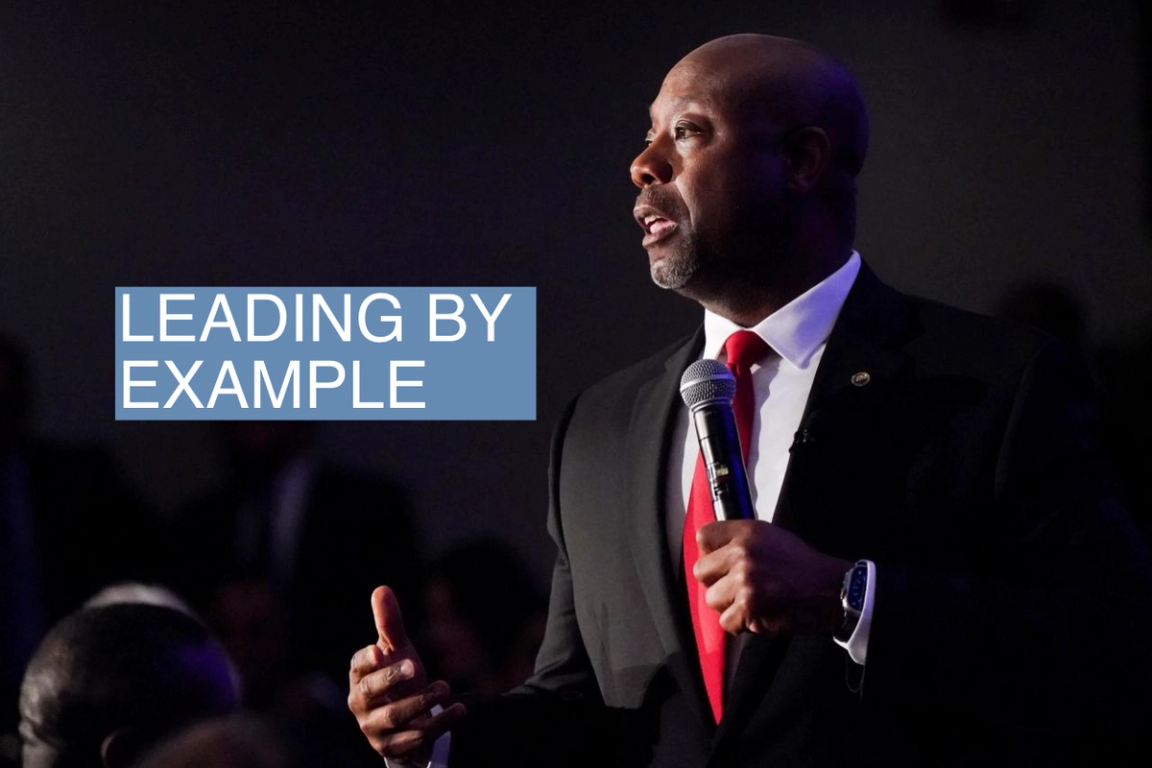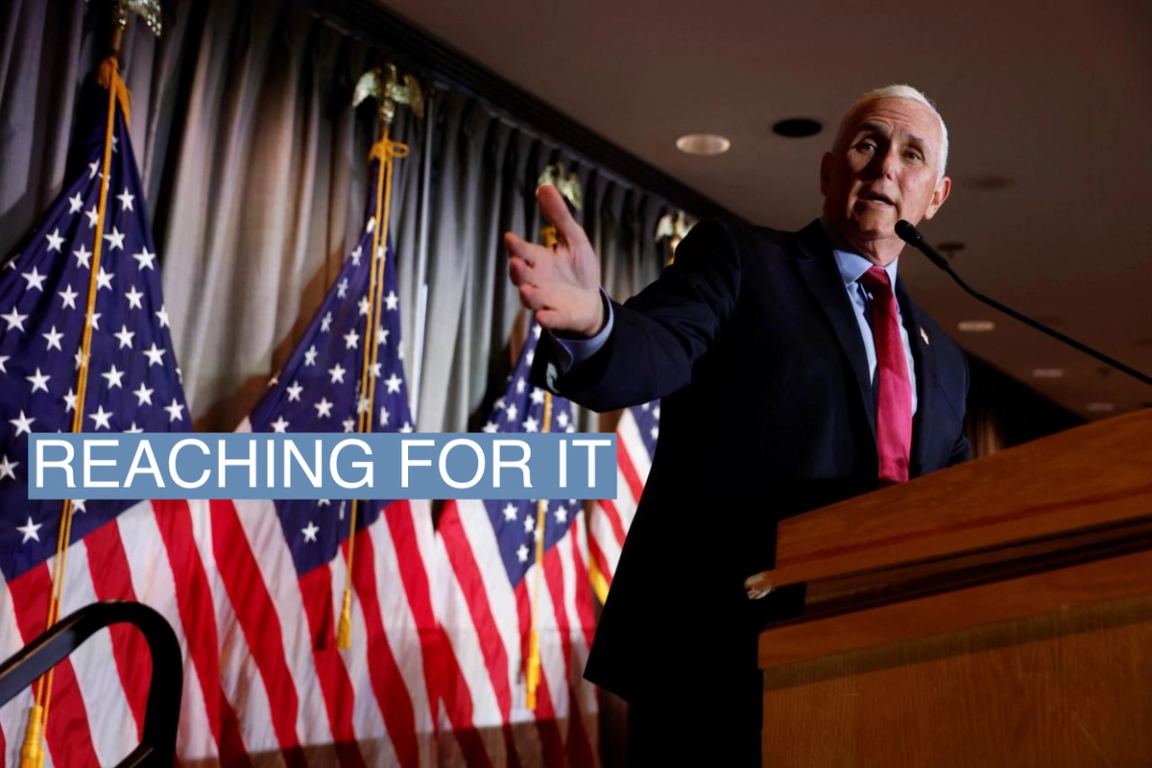 REUTERS/Allison Joyce REUTERS/Allison JoyceTHE NEWS DES MOINES, IA – On Wednesday afternoon, a few dozen students at Drake University braved near-freezing temperatures to come out and hear Sen. Tim Scott’s, R-S.C. talk about how America’s boundless promise enabled his success as a Black American — despite the liberals who call him “Uncle Tim” for saying so. “This is personal,” Scott said. “These people who call themselves progressive are attacking every rung of the ladder that helped me climb. I was the teenager whose spirit would have been crushed by a culture obsessed with identity politics and racial strife.” That same evening, Scott spoke to a packed room at the Republican Party of Polk County’s Lincoln Dinner, receiving a polite standing ovation after giving another speech that also focused heavily on anti-wokeness. “If you wanted to see the blueprint for ruining America, you’d have to make sure that in K-12 you have more indoctrination than education,” Scott said. “ If you want to ruin America, you’d have to make sure the kids spend more time on CRT than they do ABC.” SHELBY’S VIEW Race is at the center of Scott’s pitch, and he leaned heavily into his story of coming from a poor Black family that successfully went “from cotton to Congress.” It’s this success — America’s collective ability to move past discrimination, and Americans’ individual ability to overcome adversity — that the country should celebrate, Scott argues, rather than wallowing in pessimistic talk of systemic racism. “I am living proof that our Founders were geniuses we should celebrate, not cancel … that we are, indeed, a land of opportunity, not a land of oppression,” he said in his afternoon speech. But in this cycle, that’s not necessarily going to make Scott — who is largely viewed to be considering a presidential run — stand out should he decide to jump into the race, even in his own home state. Former South Carolina Gov. Nikki Haley, who was also in Iowa the day before, is running on her biography as a “brown girl growing up in a black-and-white world” whose rise from a humble immigrant family proves “America is not a racist country.” And entrepreneur Vivek Ramaswamy, who entered the race on Tuesday, is running on his recent “anti-woke” activism, which emphasizes patriotism and rugged individualism over claims of victimhood. Scott has some unique assets, though. His rhetoric puts a strong emphasis on faith and optimism and he has a record he’s proud of that he sees connecting to these themes, especially tax cuts for “opportunity zones” to draw businesses to underdeveloped areas. And while he’s occasionally criticized Donald Trump for straying into bigotry (as well as Joe Biden), he’s largely avoided antagonizing either side in the GOP’s ongoing civil war over how to handle the former president. Instead he’s stuck to leading by example with years of positive un-Trumpy speeches in front of conservative audiences, where they have often been well-received. His latest remarks were similar, albeit with an especially high number of barbs pointed at the left. Ryan Frederick, a 20-year old Republican studying politics and secondary education at Drake University, told Semafor Scott’s “positive” message that stressed “we’re not going to start hating our enemies” stood out to him in the 2024 field. “I think that right now, the Republican Party’s at kind of a fork in the road, with Trump and DeSantis pushing in one way, where they’re really welcoming in a lot of white supremacists, and a lot of really divisive speech,” he said. “And I think that Sen. Scott takes it in a very different direction, where he’s willing to push back against some of those things.” All of the potential voters I spoke with throughout the day rejected the idea that they’d vote for Scott — or any minority candidate, for that matter — based primarily on their skin color or ethnic background. At the same time, they loved to hear him pushing back on “woke” rhetoric. 41-year-old Nathaniel Gavronsky, who described Scott as his “second favorite person in the entirety of the U.S. government” (behind Iowa Sen. Joni Ernst), told me that fellow Americans shouldn’t “tell people that because of the way they look or where they’re from that they have no chance of success.” | 







